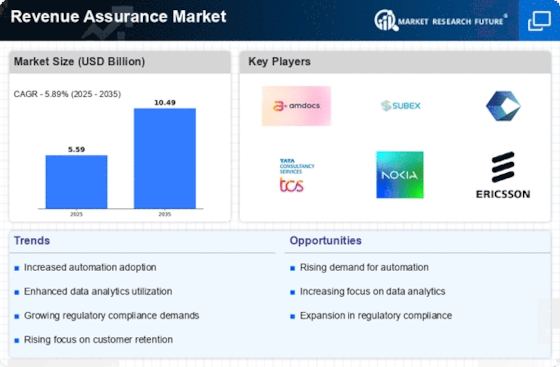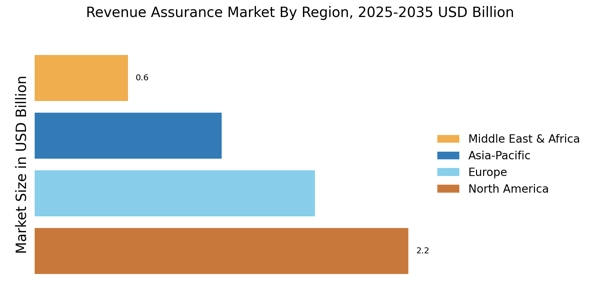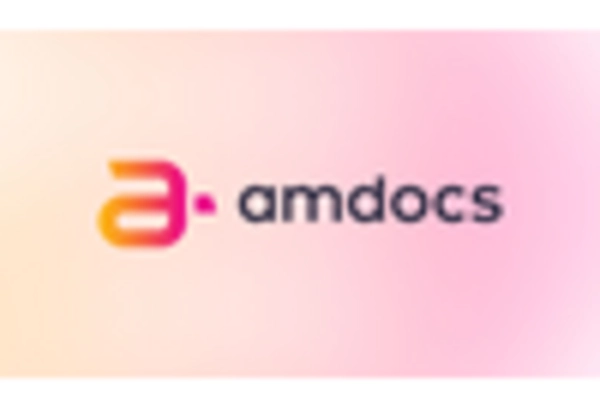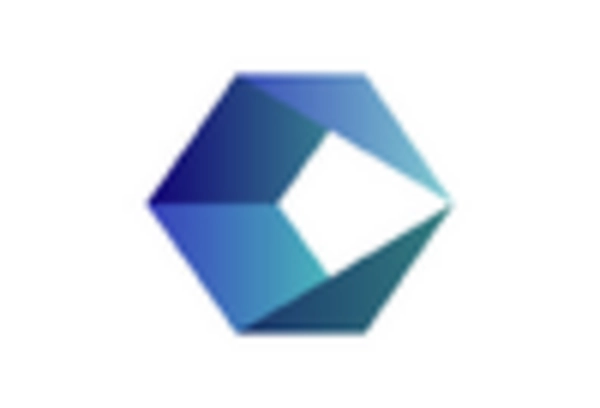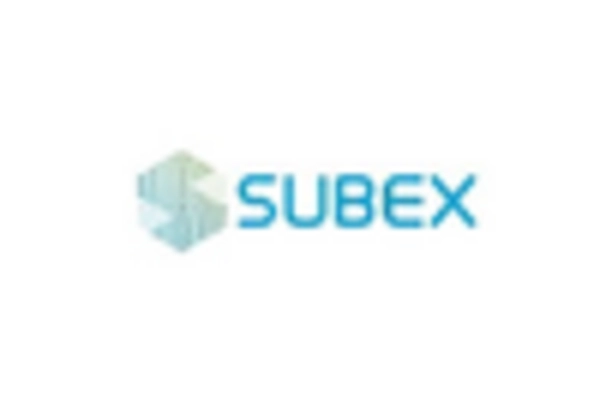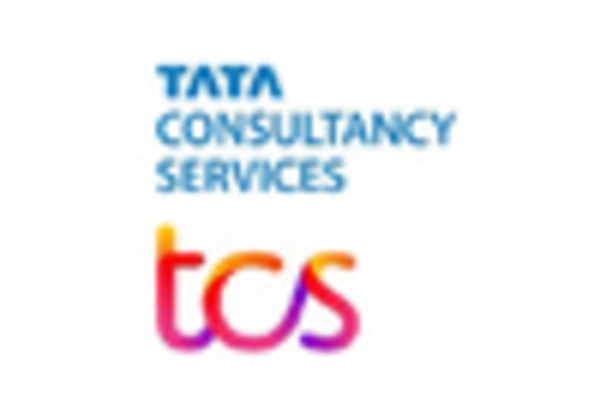Rising Regulatory Pressures
The Revenue Assurance Market is increasingly shaped by rising regulatory pressures across various sectors. Governments and regulatory bodies are implementing stringent compliance requirements to ensure transparency and accountability in financial reporting. For instance, the introduction of regulations such as GDPR and PCI DSS has compelled organizations to adopt robust revenue assurance practices to avoid hefty fines and reputational damage. This regulatory landscape is driving investments in revenue assurance solutions that not only ensure compliance but also enhance overall operational efficiency. As organizations navigate these complex regulatory frameworks, the demand for specialized revenue assurance tools is expected to grow, thereby propelling the Revenue Assurance Market forward.
Adoption of Cloud-Based Solutions
The shift towards cloud-based solutions is significantly influencing the Revenue Assurance Market. Organizations are increasingly migrating their operations to the cloud, driven by the need for scalability, flexibility, and cost-effectiveness. According to recent estimates, the cloud computing market is projected to reach over 800 billion dollars by 2025, indicating a robust trend towards cloud adoption. This transition allows companies to implement revenue assurance solutions that are more agile and responsive to changing market conditions. Furthermore, cloud-based revenue assurance tools facilitate real-time monitoring and analytics, enabling organizations to identify and rectify revenue leakage promptly. As such, the Revenue Assurance Market is likely to benefit from this ongoing cloud migration.
Emergence of Artificial Intelligence
The integration of artificial intelligence (AI) technologies is transforming the Revenue Assurance Market. AI-driven analytics and machine learning algorithms are enabling organizations to detect anomalies and patterns in revenue streams with unprecedented accuracy. This technological advancement allows for proactive identification of potential revenue leaks, thereby minimizing financial losses. Recent studies suggest that AI could potentially reduce operational costs by up to 30%, making it an attractive proposition for businesses seeking to enhance their revenue assurance capabilities. As AI continues to evolve, its application within the revenue assurance domain is likely to expand, fostering innovation and efficiency in the Revenue Assurance Market.
Growing Focus on Customer Experience
The emphasis on customer experience is becoming a pivotal driver in the Revenue Assurance Market. Organizations are recognizing that enhancing customer satisfaction directly correlates with revenue retention and growth. As a result, companies are investing in revenue assurance solutions that not only safeguard revenue but also improve the overall customer journey. By leveraging data analytics, businesses can gain insights into customer behavior and preferences, allowing for tailored offerings that resonate with their target audience. This focus on customer-centric strategies is expected to propel the demand for revenue assurance tools that align with customer experience initiatives, thereby shaping the future of the Revenue Assurance Market.
Increasing Demand for Data Integrity
The Revenue Assurance Market is experiencing a notable surge in demand for data integrity solutions. As organizations increasingly rely on data-driven decision-making, the need for accurate and reliable data has become paramount. This trend is underscored by the fact that businesses lose approximately 20 to 30% of revenue due to poor data quality. Consequently, companies are investing in revenue assurance tools that ensure data accuracy and consistency across various platforms. This focus on data integrity not only enhances operational efficiency but also fosters customer trust, which is essential in a competitive landscape. The Revenue Assurance Market is thus poised for growth as organizations prioritize data quality to safeguard their revenue streams.


